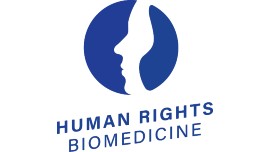The work of the Working Party has particularly focussed on the fundamental questions surrounding the question of the protection of the embryo and foetus in the framework of in vitro fertilisation procedures, as well as the problems raised by preimplantation diagnosis and by recent developments in the research field.
It appears that, while a large number of issues relating to the protection of the embryo in vitro are the subjects of consensus at European level, on certain points there remains a great diversity of opinion that makes it difficult to identify a common approach. In that context, it was considered that a report, making the most of the reflection within the Working Party on the protection of the human embryo in vitro , would be a useful step to advance discussions on an ethical level on these issues.
That report, made public on 19 June 2003, presents briefly and impartially the diverse positions that exist on questions related to the protection of the human embryo in vitro as well as their underlying arguments. It broaches the different questions of principle concerning the protection of the human embryo in vitro that are relevant from the point of view of all the problems touched on in the report. It then deals with the problems raised by in vitro fertilisation, research on the embryo in vitro and preimplantation genetic diagnosis respectively.












